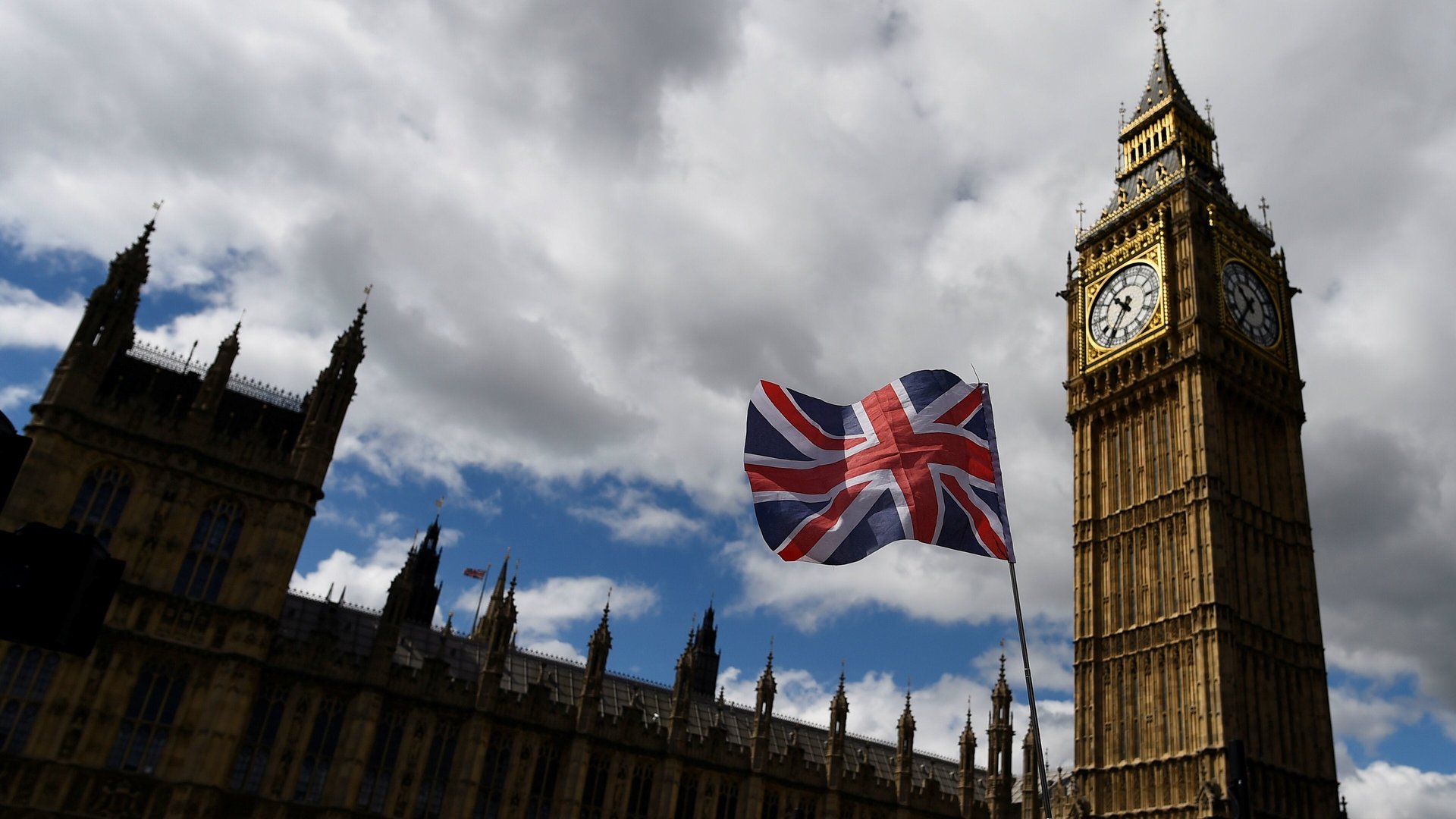The “worst possible” UK election result has traders searching for precedents about how far the pound may fall
Of all the possible outcomes of yesterday’s UK election, a so-called hung parliament was deemed the most damaging for the pound before the vote. Now, here we are, with a hung parliament.


Of all the possible outcomes of yesterday’s UK election, a so-called hung parliament was deemed the most damaging for the pound before the vote. Now, here we are, with a hung parliament.
Who will form a government, what their domestic policies will be, and—most significantly—what it means for Brexit, are all open questions. Traders don’t like uncertainty, so by the time most of the results were declared early on June 9, the pound had fallen by more than 2% against the dollar.
The last time a British general election resulted in a hung parliament, in 2010, the talks to form a coalition government took five days (the Conservatives and Liberal Democrats teamed up). In that time, the pound fell, and stayed down for weeks.
This time, there is the added pressure of Brexit talks, which are scheduled to begin in just over a week. The two-year countdown for the UK negotiating its divorce from the EU was triggered in March by prime minister Theresa May. Already, there is speculation that the talks could be be delayed.
The longer it takes for a viable government to emerge, the less time the UK has to work out an amicable divorce with the EU. “We don’t know when Brexit talks start. We know when they must end,” said EU Council president Donald Tusk.
If things really drag on, the pound could keep going lower, to about $1.24, from around $1.27 now, according to analysts at ING. Goldman Sachs strategists said their 12-month forecast for the pound to hit $1.20 could come sooner than expected, thanks to the election result. Among the factors dragging down the pound are a British prime minister heading into Brexit talks with a weak mandate, facing a German chancellor and French president with much stronger support at home.
Still, the pound isn’t in free fall. It’s unclear whether a coalition or minority government will lead to a more open dialogue with the EU, and thus a softer version of Brexit (a stronger pound), or be so consumed by infighting or instability that talks falter and the UK crashes out of the EU without any special arrangements (a weaker pound).
This election result is “perhaps the worst possible outcome for the pound, at least when it comes to the Brexit issue,” Steve Barrow, a strategist at Standard Bank, said. “But while the pound may suffer it is unlikely to collapse. The currency has already slumped after the Brexit vote and it is hard to argue that it ‘needs’ to be fundamentally any weaker than it is right now.”